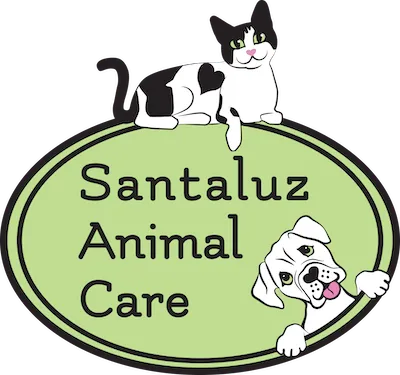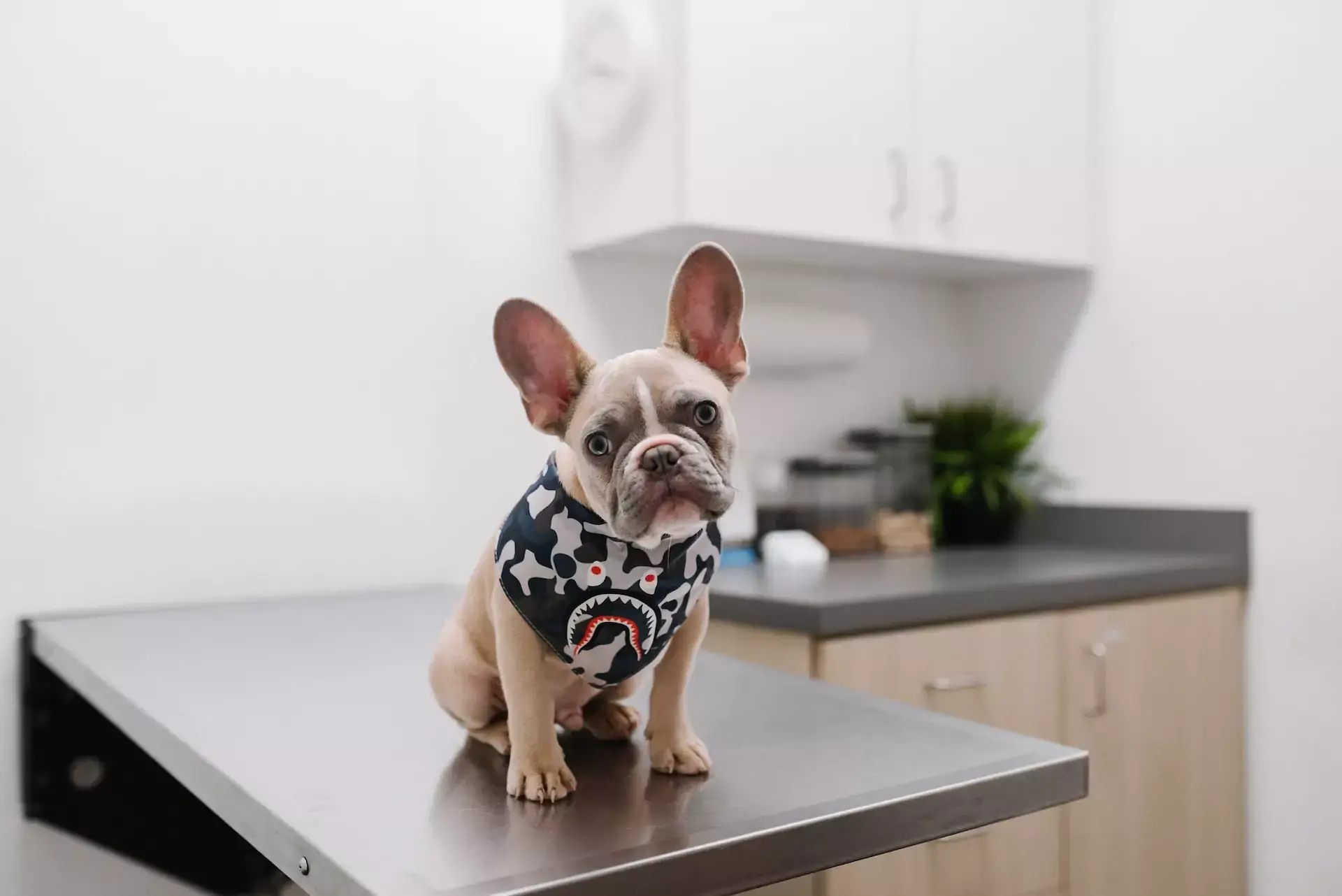When was the last time you checked on your dog’s pearly whites? Dental care is very important for our canine friends, because oral issues that are left unchecked can quickly lead to serious health problems around the body. Use these tips from a Rancho Santa Fe, CA vet clinic to maintain Fido’s good dental health:
Mouth Checks
Our first tip is to check your dog’s mouth regularly. Once a week or so, gently pull back your pup’s lips to check out the teeth and gums. Look for anything out of the ordinary—excessively red gums, a lot of brown-colored tartar build-up, misaligned teeth, bleeding, etc. Let your vet know right away if you find something that warrants concern.
Chew Toys
Make sure your pooch has a selection of chew toys to play with. These items not only keep your dog occupied and provide a lot of fun, they’re good for dental health. That’s because the action of chewing helps to scrape away some of the loose plaque along your dog’s gum line and on the outer tooth surfaces, getting rid of it before it can harden into tartar.
Tooth Brushing
Brush your dog’s teeth at home to keep the entire mouth healthy and the breath a little fresher. Always use a canine-formulated toothpaste, as toothpastes made for humans might contain toxic ingredients for pets. And be sure to use a dog-specific toothbrush for maximum effectiveness. Brushing every day, or at least a few times a week, is recommended to keep your dog’s teeth and gums in tip-top shape.
If you need a recommendation on a dog toothpaste, or if you’d like help getting started with brushing sessions at home, contact your vet’s office.
Good Food and Fresh Water
Feeding your pet a great diet is a good thing for just about every part of the body, the mouth included. When Fido receives good nutrition through the diet, the gums and teeth stay strong. And plenty of fresh water is important not only for hydration, but for flushing out the mouth and getting rid of leftover food particles and other grime.
Dental Cleanings
There’s nothing quite like a professional dental cleaning procedure at the vet’s office. A veterinary dental cleaning makes for a plaque- and tartar-free mouth and sets your dog up for good oral health in the future.
Our Advice on Dental Care Tips for Fido in 2024
How often should dog owners schedule professional dental cleanings for their pets?
Dog owners should schedule professional dental cleanings for their pets at least once a year, although more frequent cleanings might be recommended based on the dog’s specific health needs and oral condition. Regular professional cleanings by a veterinarian are crucial as they help remove plaque and tartar that can’t be eliminated by regular brushing alone. This preventive measure significantly reduces the risk of periodontal disease, which can affect the dog’s overall health if left untreated. Always consult with your veterinarian to determine the best dental care schedule for your individual pet.
Are there any risks or side effects associated with professional dental cleaning procedures for dogs?
Professional dental cleaning procedures for dogs are generally safe, but they do carry some risks, primarily due to anesthesia. Anesthesia is necessary to keep the dog still and pain-free during the cleaning, but it can pose risks, especially for older dogs or those with underlying health issues. There may also be minor side effects, such as temporary lethargy or decreased appetite. However, the benefits of maintaining oral health typically outweigh these risks. Veterinarians take several precautions to minimize any potential adverse effects, including pre-procedure health assessments and monitoring during anesthesia.
Are there any specific types of dog chew toys that are more effective at promoting dental health than others?
Certain types of dog chew toys are indeed more effective at promoting dental health. Toys that are specifically designed to reduce plaque and tartar build-up tend to be most beneficial. These include rubber or nylon toys with nubby surfaces or ridges, which help scrape away plaque as the dog chews. Additionally, some dental chews are formulated with ingredients that assist in cleaning the teeth and freshening breath. It’s essential to select chew toys that are durable and appropriately sized for the dog to avoid any risk of choking or gastrointestinal blockages.
How can dog owners introduce and acclimate their pets to regular tooth brushing routines?
To acclimate dogs to regular tooth brushing, start by introducing the concept gradually. Begin with letting the dog taste the canine-formulated toothpaste, then progress to rubbing their teeth and gums gently with your finger. Next, use a toothbrush designed for dogs without toothpaste to get them used to the sensation. Reward them with praise and treats throughout the process to associate tooth brushing with positive experiences. Consistency is vital; brushing a few times a week and increasing to daily will help establish a routine they become comfortable with.
Are there any specific dietary changes or supplements that can help promote better dental health in dogs?
To promote better dental health in dogs, consider dietary changes and supplements that support oral hygiene. Feeding dry kibble rather than soft food can help reduce plaque buildup, as the hard texture helps scrape teeth clean. Dental health diets specifically formulated for plaque reduction are also effective. Supplements like those containing enzymes to break down plaque or additives like seaweed, which has been shown to reduce the formation of dental tartar, can be beneficial. Always ensure any diet change or supplement is suitable for your dog’s specific health needs.
Looking to schedule a dental cleaning for your dog? Our clinic also provides a range of Alternative Vet Therapies to promote overall health and wellness for your furry friend. Contact our animal clinic in Rancho Santa Fe, CA and our veterinary team will be happy to assist you. In addition to dental care, we also offer Alternative Cancer Therapy For Pets to support the well-being of animals with cancer.





